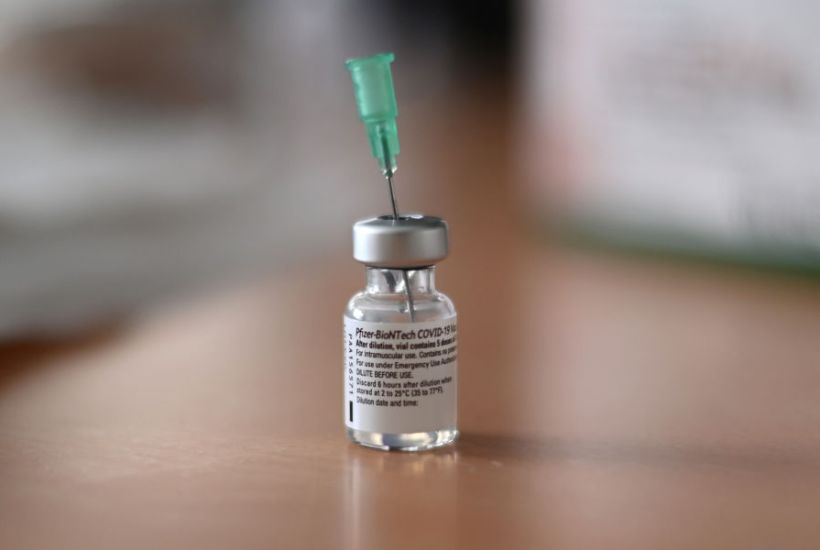We haven’t lowered tariffs on food. We haven’t done many new trade deals, and certainly not one with the United States. Hardly any rules and regulations have been repealed, and if anyone thought it was going to help fix the NHS then the winter crisis will have disappointed them. Six years since we voted to leave, and two years after we finally severed our ties with the European Union, Brexit wins have been noticeable mainly by their absence. But hold on. We may finally have one – a partnership with the drugs developer BioNTech to pioneer cancer treatments.
The German company, best known for developing the Covid vaccine that was jabbed into most of our arms courtesy of its larger partner Pfizer, has announced a partnership with the UK to develop a new range of MRNA based cancer vaccines. It is cutting-edge technology, using vaccines to stop cancers returning, or to prevent them from spreading if they are detected early enough. Plenty of countries will be interested in time, but the UK looks to be getting there first. ‘The UK is a great partner for this endeavor,’ the BioNTech co-founder Professor Ozlem Tureci told BBC News: ‘We have seen in the Covid-19 pandemic with the fast approval of vaccines in the UK that the regulatory authority is exceptional. And then there is the genomic-analysis capabilities. The UK is one of the leading nations in that regard.’
The story is mainly interesting from a medical and scientific perspective, of course. Any breakthroughs in cancer treatment will eventually save millions of lives. And yet, it is also interesting from a political angle as well. Many of the benefits of leaving the EU were overhyped or oversold. But BioNtech tells us there are two ways in which the UK economy can still benefit from it. First, it allows the UK to create a more flexible, simpler regulatory structure, and one that is better suited to our needs, and avoids the ‘if in doubt ban it’ bureaucracy that dominates the rest of Europe. Second, the UK can use that to become a laboratory for advanced science and technology. Life sciences are the most obvious example of that, partly because the UK was already strong in that industry. Over time, however, it could also be true of artificial intelligence, of driverless cars, of lab-grown meats and vertical fans, of nuclear fusion, and many of the other growth industries of the next 20 years. If they can be developed first in the UK, then companies will flock here, creating well-paid jobs. And eventually some of those businesses will go out into the world and create substantial companies.
Sure, there are plenty of downsides to being outside the EU and its Single Market. Trade is harder, although it has hardly collapsed, and small businesses in particular struggle with the paperwork. But there are also positives, it is just taking a few years for them to start coming through. After a decade, however, the pluses may finally start to outweigh the minuses – and that will change the debate on whether it was the right decision.
Got something to add? Join the discussion and comment below.
Get 10 issues for just $10
Subscribe to The Spectator Australia today for the next 10 magazine issues, plus full online access, for just $10.




















Comments
Don't miss out
Join the conversation with other Spectator Australia readers. Subscribe to leave a comment.
SUBSCRIBEAlready a subscriber? Log in